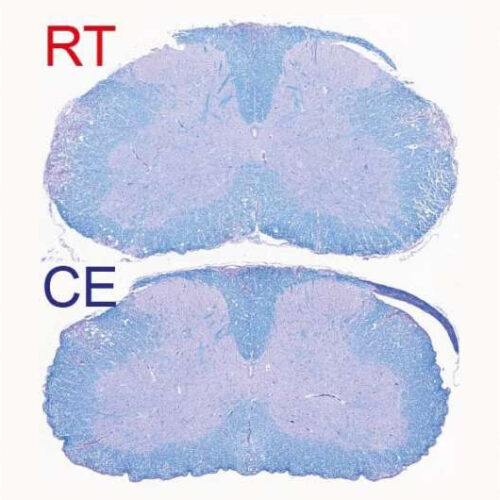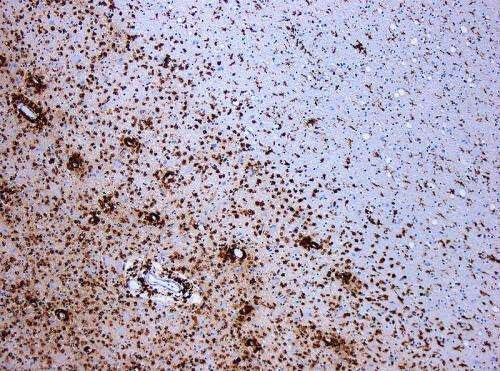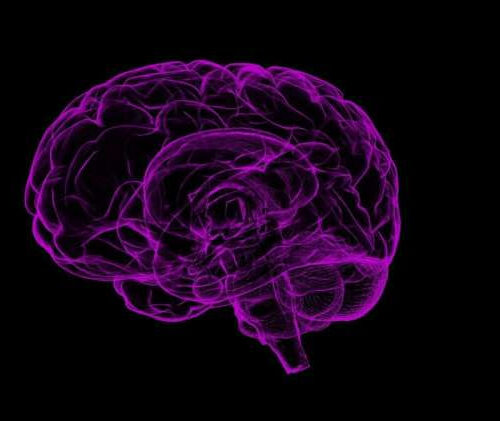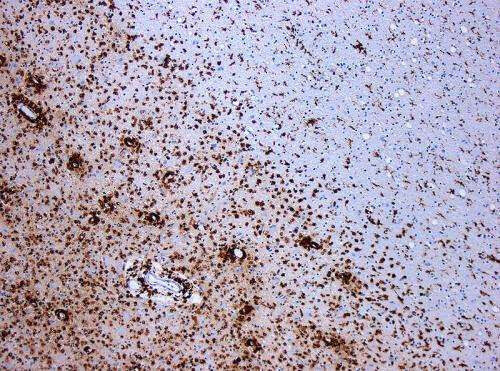Alzheimer’s symptoms include memory loss. Michela Ravasio/Stocksy A drug doctors use to treat multiple sclerosis may be effective in treating Alzheimer’s symptoms, including memory loss. In mice, memory improved after 8 weeks of treatment with the drug. The treated mice also showed a reduction in amyloid plaques. Clinical trials are needed to show whether the...
Tag: <span>Multiple sclerosis</span>
Multiple sclerosis drug improves memory in mice modeling Alzheimer’s disease
Nov. 5, 2021 Losing memory is a hallmark of Alzheimer’s, a symptom of the disease that depletes a patient’s quality of life. Improving memory and slowing cognitive changes caused by the disease is an ongoing challenge for researchers seeking to develop novel therapies. In a newly published paper in Frontiers in Neuroscience, researchers at the Del Monte...
New multiple sclerosis treatments focused on inhibiting nerve cell damage
by University of Saskatchewan Dr. Michael Levin and his research team are looking for new ways to treat multiple sclerosis by examining how nerve signals become compromised. Credit: University of Saskatchewan Research from a University of Saskatchewan (USask) College of Medicine team will help develop medications that can inhibit the nerve cell damage that occurs...
Vibration training for multiple sclerosis
by Georgia State University Credit: Unsplash/CC0 Public Domain Multiple sclerosis (MS) is a chronic neurological disease that affects the body’s central nervous system. It can limit a person’s mobility, impair physical and cognitive functions, and increase the risk of falling, collectively compromising quality of life. Cognitive impairment has been particularly difficult for researchers to address,...
Fighting multiple sclerosis with cold
by University of Geneva Demyelinated spinal cord of mice suffering from autoimmune disease. Top, at room temperature, and bottom, exposed to cold. Myelin is coloured in blue. The purple staining within the white matter (parts towards the edge of the histological section) shows demyelinated lesions that are reduced in the bottom image. Credit: © UNIGE –...
Multiple sclerosis: The link with earlier infection just got stronger
by Scott Montgomery, The Conversation Demyelination by MS. The CD68 colored tissue shows several macrophages in the area of the lesion. Original scale 1:100. Credit: Marvin 101/Wikipedia For most of the time since the first description of multiple sclerosis (MS) in 1868, the causes of this disabling disease have remained uncertain. Genes have been identified as important, which...
New avenue for study of diseases like multiple sclerosis
ANN & ROBERT H. LURIE CHILDREN’S HOSPITAL OF CHICAGO A surprising discovery may offer a promising new direction in the study of multiple sclerosis and other diseases of hypomyelination – when axons of neurons are not covered sufficiently in fatty sheaths (myelin), which disrupts communication between nerve cells. While investigating potential mechanisms of brain tumor...
Brain molecule helps ‘wake up’ cells that could help tackle MS and similar diseases, study shows
by University of Alberta Faculty of Medicine & Dentistry Credit: Pixabay/CC0 Public Domain An immunological molecule called fractalkine can boost the production of brain cells that produce myelin, a key factor in diseases such as multiple sclerosis, according to recent research from the University of Alberta. Myelin is an insulating layer around nerves that is gradually worn away...
A promising path for future treatments to stop progressive multiple sclerosis
by National Multiple Sclerosis Society Demyelination by MS. The CD68 colored tissue shows several macrophages in the area of the lesion. Original scale 1:100. Credit: Marvin 101/Wikipedia Researchers at the National Institutes of Health, Johns Hopkins University, and others have published results of studies that map out the activity of genes, molecules, cells, and their interactions...
Multiple sclerosis linked to infection in adolescence
by Scott Montgomery, The Conversation Credit: New Africa/Shutterstock Multiple sclerosis (MS) is most often diagnosed between the ages of 20 and 50. Certain genes put a person at greater risk of getting this disease of the central nervous system, but scientists are still trying to understand the triggers. My colleagues and I have been studying these...








